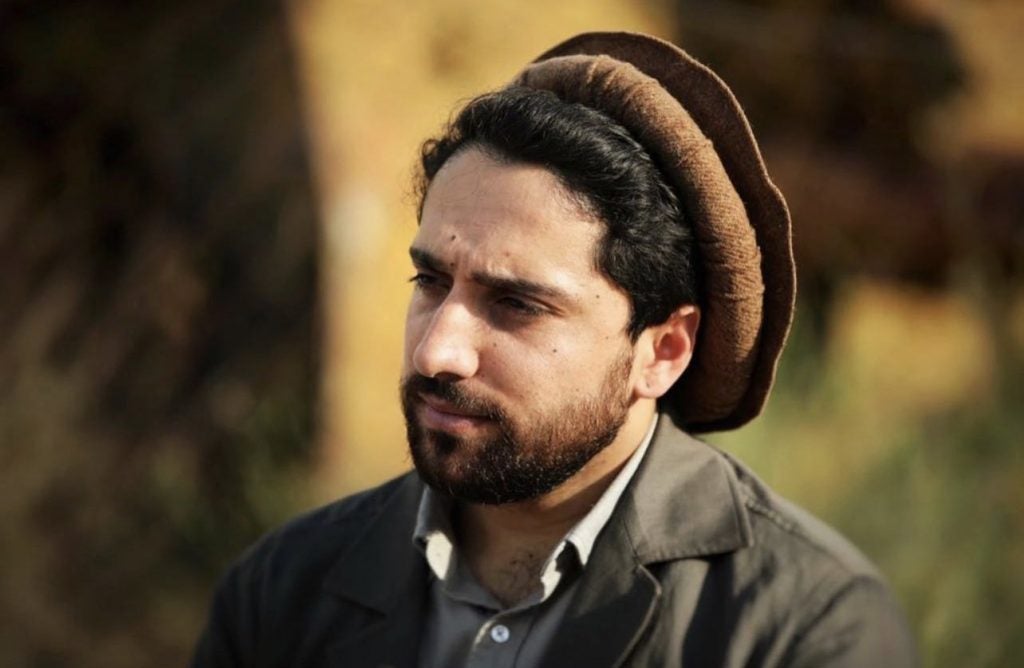Panjshir Resistance Leader Calls For “National Uprising”
The leader of the National Resistance Front of Afghanistan, Ahmad Massoud, has made a speech calling for a national uprising against Taliban rule in Afghanistan. The speech follows Taliban claims to have taken control of the valley, which was home to the resistance’s operations.
In the speech, Massoud extended his condolences to the families of resistance fighters killed in recent fighting against Taliban forces. He said that the Taliban had refused a resolution made by Afghanistan’s Ulema Council calling for a ceasefire despite the resistance agreeing to it, showing that they were “more vicious, more cruel, more fundamentalist and more discriminatory than yesterday”. Instead, a “full-scale” Taliban offensive was launched, with Massoud’s close family members among the dead.
Despite this, Massoud stated that “the death of our compatriots does not weaken and demoralize us”, calling upon Afghans “inside the country or outside” to rise up for the dignity, integrity and freedom of Afghanistan. He expressed solidarity with recent peaceful protests by women activists in Herat and Kabul that were violently dispersed by the Taliban, as well as protests overseas by the Afghan diaspora, saying that the resistance was indebted to their efforts.
The speech follows official Taliban claims to have gained control of the province on Monday. The resistance, however, claims they retain control of “strategic positions” throughout Panjshir, vowing to continue fighting until “justice and freedom prevails”. The NRF had reported on Sunday the loss of two senior leaders in combat, with the death of General Abdul Wudod Zara and spokesperson Fahim Dashty, a close confidant of Ahmad Shah Massoud that survived the al Qaeda assassination of the famed Northern Alliance leader shortly before the 9/11 attacks.
The NRF had accused the Pakistan Air Force of using unmanned aerial vehicles and captured Afghan Air Force aircraft to target resistance positions on Sunday, with unconfirmed reports that the home of acting President of Afghanistan Amrullah Saleh had been specifically targeted by attack helicopters. The accusations followed a Saturday visit to Kabul by the head of Pakistan’s Inter-Services Intelligence, Lt-Gen Faiz Hameed, which had sparked rumors that Islamabad would be taking a more direct role in attempting to suppress the resistance.
Despite Massoud’s statement that “history and the people of Afghanistan will judge their acts, those who come to our aid and those who don’t”, international reactions remain muted. The closest thing to an exception was Iranian Foreign Ministry spokesperson Saeed Khatibzadeh, who condemned the aerial attacks on Monday, adding that Tehran would be investigating “foreign interference” into Afghanistan. Khatibzadeh also accused the Taliban of violating international law with its siege of Panjshir province (cutting off telecommunications, electricity and fuel among other utilities), stating that the government of Iran believed that there was only a “political solution” to the fighting.
Khatibzadeh’s statements, however, are undercut by Tehran’s silence on the resistance up until very recently, with publications affiliated with the government or the Islamic Revolutionary Guard Corps instead reiterating the Taliban’s claims of having changed in their 20 years out of power. Similarly, the IRGC’s Quds Force has long been accused of supplying Taliban fighters with supplies, weaponry and training, including explosively formed projectile components for anti-vehicle explosive devices and even shoulder-fired anti-aircraft missiles.

